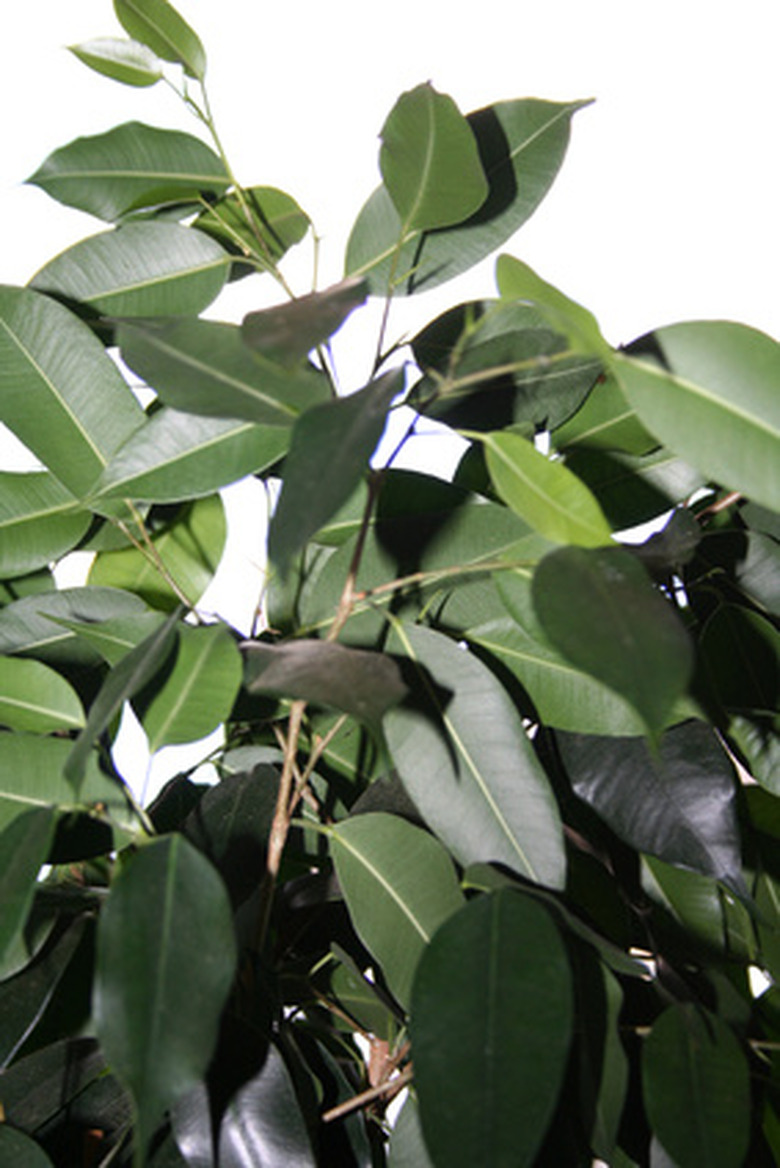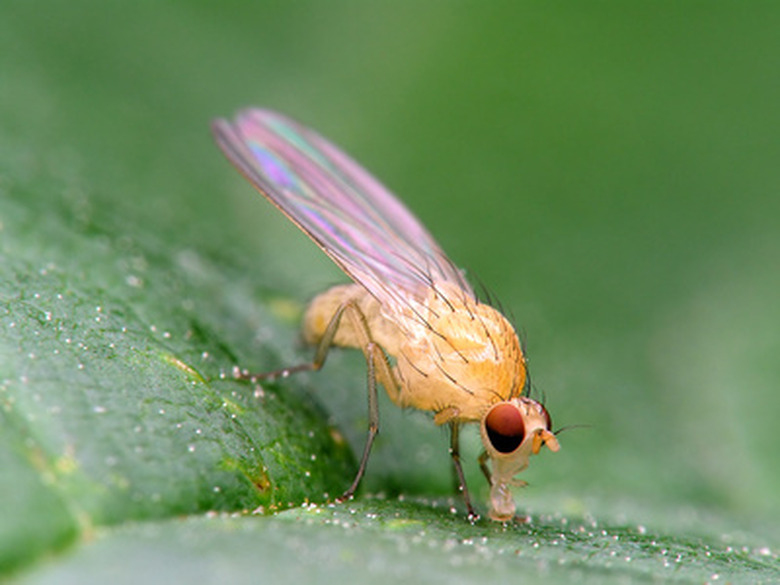How To: Pests On Ficus Benjamina
Things Needed
- Pruning shears
- Plastic garbage bags
- Rubbing alcohol
- Insecticidal soap
- Horticultural oil
- Cotton balls
- Bucket
- Spray bottle
- Dish soap
Ficus benjamina, or weeping fig, is generally grown as a houseplant, but you can take it outside or grow it outdoors in warm climates. Both indoor and outdoor plants are susceptible to several pests, including white fly, mealybug, spider mites, thrips and scale. These pests can decimate a plant and you need to intervene to save your Ficus benjamina plant.
Step 1
Inspect leaves, stems, branches and trunk for signs of pest infestations every other week. Dropping leaves does not necessarily mean there is a pest because the ficus is so delicate that a change in temperature can cause stress and falling leaves.
Step 2
Identify the pest. White fly will cause the leaves to drop and will also be seen flying in clouds around the plant. Mealybugs are found on the undersides of leaves and look like tiny bits of cotton wool. They also cause leaves to dry and drop. Spider mites leave webs and you will see small puncture holes on the leaves. Thrips are too hard to see individually, but look like tiny black dots on leaves. The leaves also dry and fall off the tree with a thrips infestation. Scale insects are difficult to see identify because they are mostly stationary. They are clear but leave a sticky substance on the plant which can drip down to the pot and the floor.
- Ficus benjamina, or weeping fig, is generally grown as a houseplant, but you can take it outside or grow it outdoors in warm climates.
- Spider mites leave webs and you will see small puncture holes on the leaves.
Step 3
Isolate the affected plant once an infestation has been found. Try to keep it away from other ficus plants and other plants that would be affected by the same pest.
Step 4
Remove any dead or infested leaves or branches. Do not throw them into compost piles or piles on the ground. Place them in a plastic garbage bag and get rid of them immediately. If the entire plant is involved, try to use a remedy, but the whole plant may have to be destroyed.
Step 5
Prepare a remedy specific to the type of pest. Wipe mealybugs and scale with rubbing alcohol. Spray insecticidal soap for spider mites. Use horticultural oil for whitefly and scale. Thrips require a specific commercial insecticide. Check the label on the insecticide, as only certain types are effective for thrips.
- Isolate the affected plant once an infestation has been found.
- Check the label on the insecticide, as only certain types are effective for thrips.
Step 6
Treat the plant, not just once, but several times, to kill any left over bugs or larvae. For mealybugs dip cotton in rubbing alcohol and wipe off branches with a soft cloth. Do this every week until the infestation is over. Drench the ficus with insecticidal soap for spider mites every week. Thrip preparation should be sprayed on trees and ground around them four times a day for four days. Horticultural oil should be applied to branches, trunk and leaves for whitefly and scale infestations and then follow the directions as to when to apply again. Scale can also be taken care of by spraying the tree with a rubbing alcohol, water and dish soap combination until it drips. Wait one week and treat again to get any larvae that may have hatched.
- Treat the plant, not just once, but several times, to kill any left over bugs or larvae.
- Horticultural oil should be applied to branches, trunk and leaves for whitefly and scale infestations and then follow the directions as to when to apply again.
Tip
Always wipe both sides of the leaves, as most pests concentrate themselves on the undersides of the leaves.
A combination of 5 parts water to 3 parts rubbing alcohol to 1 part dish soap will get rid of scale.
Warning
Never apply oil in temperature above 80 degrees F and move the ficus out of the sun when treating. The heat will activate the oil and burn the plant.

